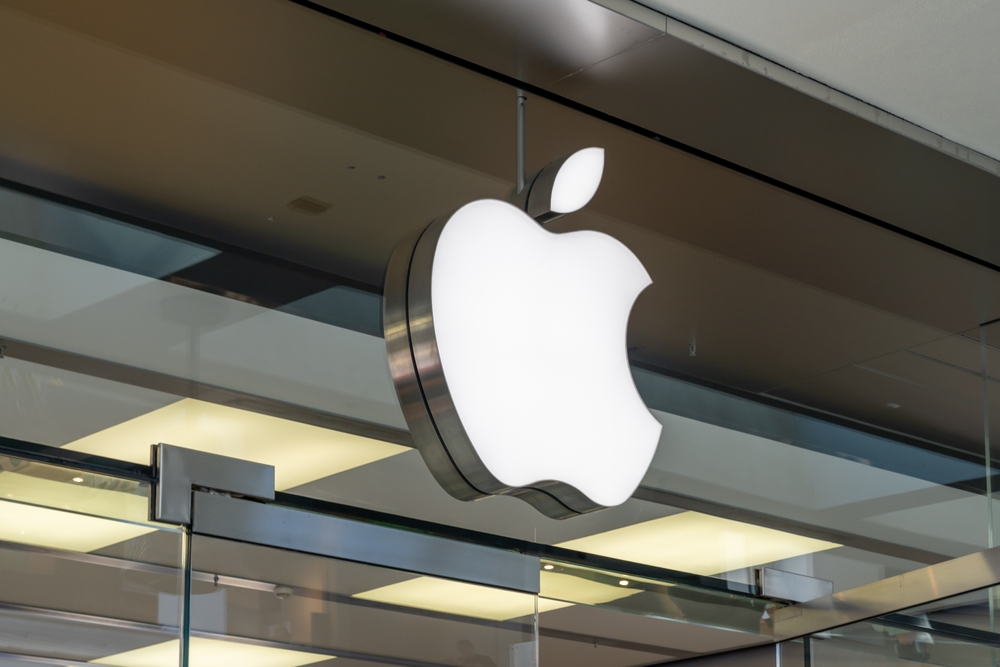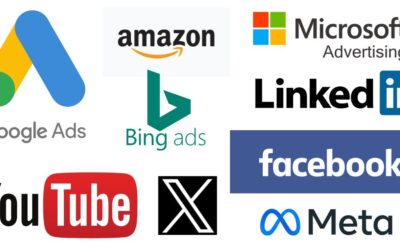Apple’s strategy to enhance privacy while simultaneously undercutting its competitors has significantly disrupted the digital advertising landscape, leaving small businesses caught in the crossfire. By implementing stringent privacy measures, Apple has positioned itself as a champion of consumer rights, but this move has also diminished the effectiveness of targeted advertising, especially for small businesses reliant on platforms like Facebook and Google.
The Rise of Apple’s Privacy Focus
Apple has long touted its commitment to user privacy, but it wasn’t until recent years that this commitment became a cornerstone of its business strategy. With the introduction of iOS 14.5 in April 2021, Apple took a bold step that would shake the digital advertising ecosystem: the introduction of App Tracking Transparency (ATT).
ATT requires apps to ask users for permission before tracking their activity across other companies’ apps and websites. While this might seem like a simple update, it has profound implications for the digital advertising industry, particularly for companies like Facebook and Google, which rely heavily on tracking user behavior to deliver targeted ads.
Apple’s move was framed as a win for consumer privacy. However, the timing and the scale of the change suggest a strategic play to weaken its competitors while solidifying its own ecosystem. By limiting the ability of Facebook and Google to collect data, Apple has effectively reduced the precision of their ad-targeting capabilities, making it harder for businesses to reach their desired audience.
The Impact on Facebook and Google
Facebook and Google dominate the digital advertising market, with their business models heavily reliant on data-driven advertising. Their algorithms use vast amounts of data to deliver highly targeted ads, ensuring that businesses can reach potential customers with pinpoint accuracy. However, Apple’s privacy changes have disrupted this model.
Without access to the same level of user data, Facebook and Google’s ad platforms have become less effective. Ads are no longer as precisely targeted, leading to higher costs for businesses and lower returns on investment. Facebook, in particular, has been vocal about the negative impact of Apple’s privacy changes, warning investors that these changes could severely affect its ad revenue.
For Facebook, the consequences have been dire. Facebook has reported significant losses in advertising revenue, which it attributes directly to Apple’s privacy measures. The loss of tracking capabilities has made it more challenging for advertisers to measure the effectiveness of their campaigns, leading some to scale back their ad spending on the platform.
Google has also felt the impact, though to a lesser extent. The company has diversified its revenue streams more effectively than Facebook, with significant income from its search engine and YouTube. Nevertheless, the loss of third-party tracking data has still hurt Google’s ad business, particularly its display network, which relies on user data to serve relevant ads.
Apple’s Strategy: A Double-Edged Sword
While Apple’s privacy changes have undoubtedly positioned the company as a leader in consumer protection, they have also served as a strategic move to weaken its rivals in the advertising space. By reducing the effectiveness of Facebook and Google’s ad platforms, Apple has created an environment where its own services, such as Apple Search Ads, become more attractive to advertisers.
Apple Search Ads, which allow developers to promote their apps directly within the App Store, have seen a surge in demand since the introduction of ATT. With Facebook and Google’s ad platforms less effective, businesses are looking for alternative ways to reach their target audience, and Apple’s ecosystem provides a compelling option.
However, this shift also highlights Apple’s growing influence over the digital advertising market. By controlling both the platform (iOS) and the ad network (Apple Search Ads), Apple has positioned itself as a gatekeeper, able to dictate the terms under which businesses can reach their customers. This centralization of power has raised concerns about Apple’s long-term strategy and its potential to stifle competition.
The Consequences for Small Businesses
While Apple’s privacy measures may have been designed to protect consumers and undermine its competitors, the fallout has been particularly harsh for small businesses. These businesses often lack the marketing budgets of larger companies and rely heavily on the precise targeting capabilities of platforms like Facebook and Google to reach their audience.
The reduced effectiveness of targeted ads has made it more difficult for small businesses to connect with potential customers, leading to higher advertising costs and lower returns on investment. For many, the ability to run cost-effective ad campaigns has been severely compromised, putting their survival at risk.
Increased Advertising Costs
One of the most immediate consequences of Apple’s privacy changes has been the increase in advertising costs. With less precise targeting available, businesses are forced to cast a wider net with their ads, reaching more people who may not be interested in their products or services. This inefficiency drives up the cost of acquiring new customers, squeezing already tight marketing budgets.
For small businesses, which often operate with limited resources, these increased costs can be devastating. Many have been forced to reduce their ad spend, leading to lower visibility and fewer sales. In some cases, businesses have had to abandon digital advertising altogether, cutting off a vital channel for growth.
Lower Return on Investment
In addition to higher costs, small businesses are also seeing lower returns on their advertising investments. Without the ability to target specific audiences, ads are less likely to resonate with viewers, resulting in fewer clicks, conversions, and sales. This decline in ad effectiveness has made it harder for small businesses to justify their marketing expenses, leading to a vicious cycle of reduced spending and declining revenue.
Analyzed data from 1,300 small businesses made by Varos, a data-sharing platform, shows that the cost to acquire new customers through online advertising was “significantly higher” in 2022 vs 2021, while revenue has also declined each month in the second quarter of 2022.
For businesses that rely on digital advertising as a primary source of customer acquisition, the impact has been particularly severe. Some have seen their profits shrink as they struggle to maintain their customer base in the face of rising costs and diminishing returns.
Nadia Martinez, founder of Kallie, a handcrafted shoes company in California, so successful marketing on Facebook that she founded an agency to teach other women how to be online entrepreneurs. But some of those businesses are now going out of business. “Ads have become more expensive, we have less access to data, and they aren’t as effective as they used to be,” she said.
Limited Access to Data and Insights
Another significant consequence of Apple’s privacy changes is the reduced access to data and insights. Small businesses have long relied on the analytics provided by platforms like Facebook and Google to understand their customers and optimize their marketing strategies. However, with the introduction of ATT, much of this data is no longer available.
Without detailed information on user behavior, businesses are flying blind when it comes to their advertising efforts. This lack of insight makes it harder to refine campaigns, target specific demographics, and measure the effectiveness of marketing initiatives. For small businesses, which often lack the resources to invest in sophisticated analytics tools, this loss of data is particularly damaging.
Navigating the New Advertising Landscape
In the wake of Apple’s privacy changes, small businesses are being forced to adapt to a new reality. While the challenges are significant, there are strategies that businesses can employ to navigate this shifting landscape and continue to reach their customers effectively.
Diversifying Marketing Channels
One of the most important strategies for small businesses is to diversify their marketing channels. Relying too heavily on any one platform, particularly those affected by Apple’s privacy changes, is a risky proposition in the current environment. Instead, businesses should explore a mix of marketing tactics, including organic social media, content marketing, email campaigns, and influencer partnerships.
By spreading their efforts across multiple channels, businesses can reduce their reliance on any single platform and mitigate the impact of Apple’s privacy measures. This approach also allows businesses to reach their audience through a variety of touchpoints, increasing the chances of making a connection.
Investing in First-Party Data
Another critical strategy is to invest in first-party data. With third-party tracking becoming less reliable, businesses need to focus on collecting and leveraging their own data. This includes information gathered directly from customers through interactions on websites, social media, and email campaigns.
By building a robust first-party data strategy, businesses can gain valuable insights into their customers’ preferences and behaviors. This data can then be used to create more personalized and targeted marketing campaigns, helping to offset the loss of third-party tracking capabilities.
Focusing on Customer Relationships
In an environment where targeted advertising is becoming more challenging, building strong customer relationships is more important than ever. Small businesses can differentiate themselves by providing exceptional customer service, engaging with their audience on social media, and creating loyalty programs that reward repeat customers.
By fostering a loyal customer base, businesses can reduce their reliance on paid advertising and benefit from word-of-mouth referrals and repeat business. This focus on relationship-building can also help businesses weather the storm of rising advertising costs and declining returns.
Exploring Alternative Advertising Platforms
As Facebook and Google’s ad platforms become less effective, small businesses should also explore alternative advertising platforms. Apple Search Ads, while still relatively new, offer a promising opportunity for businesses looking to reach users within the iOS ecosystem. Other platforms, such as TikTok, Snapchat, and Pinterest, are also gaining traction as viable advertising options, particularly for reaching younger audiences.
By experimenting with different platforms, businesses can find new ways to connect with their target audience and diversify their marketing efforts. This exploration can also lead to the discovery of niche platforms that may offer better targeting capabilities and lower costs than the more established options.
The Future of Digital Advertising
Apple’s privacy changes represent a significant shift in the digital advertising landscape, one that is likely to have long-lasting effects on the industry. While the immediate impact has been challenging for small businesses, the long-term implications are still unfolding.
The Evolving Role of Privacy
As privacy concerns continue to grow, it’s likely that other tech companies will follow Apple’s lead and implement similar measures. This trend could lead to a more privacy-focused internet, where user data is harder to collect and ad targeting becomes less precise.
For small businesses, this shift presents both challenges and opportunities. On the one hand, it may become more difficult to reach customers through traditional digital advertising channels. On the other hand, businesses that can adapt to this new environment and find innovative ways to connect with their audience will be well-positioned for success.
The Rise of Contextual Advertising
One potential outcome of Apple’s privacy changes is the resurgence of contextual advertising. Unlike behavioral advertising, which relies on tracking user behavior, contextual advertising targets ads based on the content of the page a user is viewing. This approach aligns with the growing emphasis on privacy, as it doesn’t require the collection of personal data.
For small businesses, contextual advertising offers a way to reach relevant audiences without relying on third-party tracking. By focusing on placing ads in contextually relevant environments, businesses can maintain some level of targeting while respecting user privacy.
The Importance of Innovation
In the face of these challenges, innovation will be key to the future of digital advertising. Businesses that can think creatively and adapt to the changing landscape will have a competitive advantage. This may involve exploring new technologies, such as artificial intelligence and machine learning, to optimize ad targeting and campaign performance.
It may also mean rethinking traditional marketing strategies and finding new ways to engage with customers. For small businesses, this could involve leveraging community events, local partnerships, and other grassroots marketing efforts that don’t rely on digital platforms.
A Challenging Road Ahead for Small Businesses
Apple’s privacy changes have upended the digital advertising landscape, creating significant challenges for small businesses. While these measures were introduced under the guise of protecting consumer privacy, they have also served to weaken Apple’s competitors and solidify its own position in the market.
For small businesses, the consequences have been severe. Higher advertising costs, lower returns on investment, and reduced access to data have made it more difficult to reach customers and drive sales. However, by diversifying marketing channels, investing in first-party data, focusing on customer relationships, and exploring alternative advertising platforms, businesses can navigate this new reality.
The road ahead will be challenging, but with the right strategies, small businesses can continue to thrive in the evolving digital advertising landscape. The key will be adaptability, innovation, and a commitment to understanding and meeting the needs of their customers in a privacy-conscious world.





